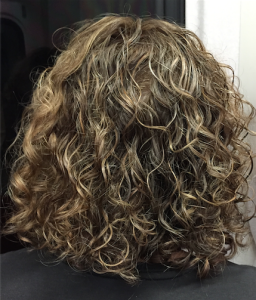Living with Type 1 diabetes is neither a fire walk nor a piece of cake. Pardon the pun. But often it feels like a fire walk. Every day and night watching your blood sugar to keep it in a safe place. Calculating and guessing all day long how everything you do will affect your immediate and long-term survival.
 Everyone seems to think these calculations are effortless. You do it every day. You’ve done it a million times. But it’s not effortless. You start all over every day. Always guessing.
Everyone seems to think these calculations are effortless. You do it every day. You’ve done it a million times. But it’s not effortless. You start all over every day. Always guessing.
I’ve had Type 1 diabetes for 43 years. I turned sixty two last week. I’ve lived with diabetes two-thirds of my life. I don’t know what it’s like to have a day I don’t stick a needle into my finger six to ten times to check my blood sugar. A day I don’t stick a syringe into my body four to six times that’s filled with insulin. Too little, too much, both have consequences.
I don’t know what it’s like to eat without calculating how many carbohydrates I’m eating. Sometimes wondering should I eat one more bite or less for the shot I took. Lately I tried joining my husband for a walk after dinner. It made my blood sugar plummet. The only way to make it rise, so I don’t die of low blood sugar overnight, is to eat. I truly hate that.
I don’t know what it’s like to do things on the spur of the moment. There is so much to consider when you have Type 1 diabetes.
This isn’t meant to be a poor me story. There are millions of people who live with far worse illnesses than I do. And, in truth, there is much diabetes has given me: strength, pride, the motivation to maintain a normal weight, purposeful work, great friends, esteemed colleagues and international travel.
This is about the feeling that Type 1 diabetes demands so much work to stay alive – and no one notices. The constant checking, testing, guessing, calculating, preventing, recovering from your blood sugar just to get safely through the day. The being at risk of dying at any moment from severe low blood sugar or too soon from diabetes related complications. And no one notices.
 Recently I was in London with my husband. We had flown over for a wedding. We sat in the living room of my husband’s good friends. I told them a story I had never shared that happened in their house.
Recently I was in London with my husband. We had flown over for a wedding. We sat in the living room of my husband’s good friends. I told them a story I had never shared that happened in their house.
It was twelve years ago. My husband and I were staying in their home on a visit. I woke at 2 AM. I was somewhat disoriented from jet lag, unfamiliar surroundings and low blood sugar.
I snuck out of bed not to wake my husband, who was sleep deprived, or our hosts, whom I didn’t know well. I walked down the hall clinging to the walls until I reached the bathroom. I turned on the light, gripped the sides of the sink and looked at my face in the mirror.
I wondered why I was there, in the bathroom, and what was I doing. Feeling weak I lay down on the black and white tile floor thinking this can’t be right. My lying here. Through the cotton fuzz of my mind it came flooding in: I have low blood sugar. I need sugar.
I got up and clumsily walked back to the bedroom. I took my glucose tablets and meter off the bedside table and went back to the bathroom. I sat on the floor, ate a few tablets, and with trembling hands checked my blood sugar. 29 mg/dl. The lowest it’s ever been. After twenty minutes, feeling more normal, having eaten more tablets, I walked back to the bedroom and crept into bed.
I told my husband the next morning what had happened. He said, “You always wake me if that happens!” But I’d never told his friends we were now having tea with.
They’ve known me a decade and know I have Type 1 diabetes. Yet they don’t really know. As most people don’t really know. Hearing this story they realized how little they did know and what my husband bears living with me every day.
The telling of the story didn’t change anything, and it did. Now two more people know that living with Type 1 diabetes is not simple or easy. That every day we do an immense amount of work just to function. Just to stay alive.
And, oddly, part of the strain is that no one notices. We are invisible.
 I want more people to know what having Type 1 diabetes is. For the millions of adults like me. The infants, toddlers and teens. The grieving, exhausted parents.
I want more people to know what having Type 1 diabetes is. For the millions of adults like me. The infants, toddlers and teens. The grieving, exhausted parents.
If you know someone with Type 1 diabetes, find out about it. And even if they don’t say, know they often feel invisible.
We work hard not to burden others with looking at us. But trust me sometimes just noticing helps.
Reprinted with permission from Riva Greenberg. Originally published in the Huffington Post, September 2015.
Riva Greenberg is a thought leader, health coach, writer and educator showcasing the emotional side of diabetes. She has won the prestigious International Diabetes Federation (IDF) Lecture Award for diabetes education and advocacy; She’s also received recognition for her blog, DiabetesStories. Riva’s latest book, Diabetes Dos & How-Tos, is available in print and Kindle, along with her other books, 50 Diabetes Myths That Can Ruin Your Life and the 50 Diabetes Truths That Can Save It and The ABCs Of Loving Yourself With Diabetes.

